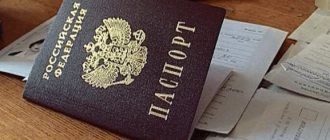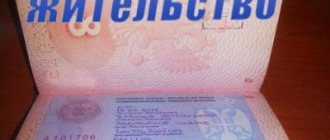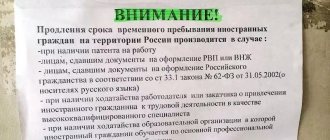The duty of a citizen is to perform the tasks assigned to him by the Constitution of the country. Moreover, these duties are important and universal, therefore everyone must comply with them. There are several basic responsibilities that fall on the shoulders of every citizen. For example, respect the law of the country, take into account the interests of other persons, which are provided for by law. This helps maintain public order in the country.
Responsibilities of a citizen of the Russian Federation: what they are
To find out what responsibilities lie on each citizen, you need to familiarize yourself with the Constitution. There are several articles there that describe every nuance as best as possible. The constitutional duties of citizens are listed and described in the second chapter of the Constitution. One of the main postulates is the equality of every citizen between himself and the state. In addition to this, there are several more important responsibilities of people who want to remain law-abiding:
- The second part of the fifteenth article talks about the obligation associated with compliance with the Constitution and laws of the country.
- The third and second parts of the thirty-eighth article state that citizens must provide care to their minor children and parents who have become disabled due to age or illness.
- The third part of the seventeenth article states that people must respect the rights and freedoms of other people.
- The fourth part of the forty-third article deals with compulsory receipt of basic general education.
- The fifty-seventh article is devoted to the obligation to pay taxes and fees.
- The fifty-eighth article is devoted to the obligation to protect nature and the environment.
- The fifty-tenth article deals with the defense of the fatherland.
- The third part of the forty-fourth article states that citizens must take care of the cultural and historical monuments of their homeland.
Each point is very important and therefore requires more detailed consideration.
Chapter 2. Rights and freedoms of man and citizen
Article 17
1. In the Russian Federation, the rights and freedoms of man and citizen are recognized and guaranteed in accordance with the generally recognized principles and norms of international law and in accordance with this Constitution.
2. Fundamental human rights and freedoms are inalienable and belong to everyone from birth.
3. The exercise of human and civil rights and freedoms should not violate the rights and freedoms of other persons.
Article 18
The rights and freedoms of man and citizen are directly applicable. They determine the meaning, content and application of laws, the activities of the legislative and executive powers, local self-government and are ensured by justice.
Article 19
1. Everyone is equal before the law and the court.
2. The state guarantees equality of rights and freedoms of man and citizen, regardless of gender, race, nationality, language, origin, property and official status, place of residence, attitude to religion, beliefs, membership in public associations, as well as other circumstances. Any form of restriction of the rights of citizens on the basis of social, racial, national, linguistic or religious affiliation is prohibited.
3. Men and women have equal rights and freedoms and equal opportunities for their implementation.
Article 20
1. Everyone has the right to life.
2. Until its abolition, the death penalty may be established by federal law as an exceptional measure of punishment for especially serious crimes against life, providing the accused with the right to have his case heard by a court with the participation of a jury.
Article 21
1. Personal dignity is protected by the state. Nothing can be a reason to belittle him.
2. No one should be subjected to torture, violence, or other cruel or degrading treatment or punishment. No one can be subjected to medical, scientific or other experiments without voluntary consent.
Article 22
1. Everyone has the right to freedom and personal security.
2. Arrest, detention and detention are permitted only by court decision. Pending a court decision, a person cannot be detained for more than 48 hours.
Article 23
1. Everyone has the right to privacy, personal and family secrets, protection of their honor and good name.
2. Everyone has the right to privacy of correspondence, telephone conversations, postal, telegraph and other messages. Restriction of this right is permitted only on the basis of a court decision.
Article 24
1. Collection, storage, use and dissemination of information about the private life of a person without his consent is not permitted.
2. State authorities and local self-government bodies, their officials are obliged to provide everyone with the opportunity to familiarize themselves with documents and materials that directly affect their rights and freedoms, unless otherwise provided by law.
Article 25
Home is inviolable. No one has the right to enter a home against the will of the persons living there, except in cases established by federal law, or on the basis of a court decision.
Article 26
1. Everyone has the right to determine and indicate their nationality. No one can be forced to determine and indicate their nationality.
2. Everyone has the right to use their native language, to freely choose the language of communication, education, training and creativity.
Article 27
1. Everyone who is legally present on the territory of the Russian Federation has the right to move freely, choose their place of stay and residence.
2. Everyone can freely travel outside the Russian Federation. A citizen of the Russian Federation has the right to freely return to the Russian Federation.
Article 28
Everyone is guaranteed freedom of conscience, freedom of religion, including the right to profess, individually or together with others, any religion or not to profess any, to freely choose, have and disseminate religious and other beliefs and to act in accordance with them.
Article 29
1. Everyone is guaranteed freedom of thought and speech.
2. Propaganda or agitation that incite social, racial, national or religious hatred and enmity are not permitted. Promotion of social, racial, national, religious or linguistic superiority is prohibited.
3. No one can be forced to express or renounce their opinions and beliefs.
4. Everyone has the right to freely seek, receive, transmit, produce and disseminate information by any legal means. The list of information constituting a state secret is determined by federal law.
5. Freedom of the media is guaranteed. Censorship is prohibited.
Article 30
1. Everyone has the right to association, including the right to create trade unions to protect their interests. Freedom of activity of public associations is guaranteed.
2. No one can be forced to join or remain in any association.
Article 31
Citizens of the Russian Federation have the right to assemble peacefully, without weapons, to hold meetings, rallies and demonstrations, processions and picketing.
Article 32
1. Citizens of the Russian Federation have the right to participate in the management of state affairs, both directly and through their representatives.
2. Citizens of the Russian Federation have the right to elect and be elected to government bodies and local self-government bodies, as well as to participate in a referendum.
3. Citizens declared incompetent by a court, as well as those held in prison by a court sentence, do not have the right to elect or be elected.
4. Citizens of the Russian Federation have equal access to public service.
5. Citizens of the Russian Federation have the right to participate in the administration of justice.
Article 33
Citizens of the Russian Federation have the right to apply personally, as well as send individual and collective appeals to state bodies and local governments.
Article 34
1. Everyone has the right to freely use their abilities and property for entrepreneurial and other economic activities not prohibited by law.
2. Economic activities aimed at monopolization and unfair competition are not allowed.
Article 35
1. The right of private property is protected by law.
2. Everyone has the right to own property, own, use and dispose of it, both individually and jointly with other persons.
3. No one can be deprived of his property except by a court decision. Forced alienation of property for state needs can only be carried out subject to prior and equivalent compensation.
4. The right of inheritance is guaranteed.
Article 36
1. Citizens and their associations have the right to own land in private ownership.
2. Possession, use and disposal of land and other natural resources are carried out by their owners freely, if this does not cause damage to the environment and does not violate the rights and legitimate interests of other persons.
3. The conditions and procedure for using land are determined on the basis of federal law.
Article 37
1. Labor is free. Everyone has the right to freely use their ability to work, choose their type of activity and profession.
2. Forced labor is prohibited.
3. Everyone has the right to work in conditions that meet safety and hygiene requirements, to remuneration for work without any discrimination and not lower than the minimum wage established by federal law, as well as the right to protection from unemployment.
4. The right to individual and collective labor disputes is recognized using the methods for resolving them established by federal law, including the right to strike.
5. Everyone has the right to rest. A person working under an employment contract is guaranteed the length of working hours established by federal law, weekends and holidays, and paid annual leave.
Article 38
1. Motherhood and childhood, the family are under the protection of the state.
2. Caring for children and raising them is an equal right and responsibility of parents.
3. Able-bodied children who have reached the age of 18 must take care of disabled parents.
Article 39
1. Everyone is guaranteed social security by age, in case of illness, disability, loss of a breadwinner, for raising children and in other cases established by law.
2. State pensions and social benefits are established by law.
3. Voluntary social insurance, the creation of additional forms of social security and charity are encouraged.
Responsibilities of a citizen to comply with the Constitution and laws of Russia
The conditions and requirements that are spelled out in the Constitution of the country are binding not only on individual citizens. Of course, ordinary people are obliged to fulfill them, but the requirements under consideration also apply to bodies vested with state power and working in the field of local self-government. In addition, the duties of a citizen also apply to officials, to some extent, even to a greater extent than to an ordinary person.
Please note that compliance with the norms prescribed in the Constitution is mandatory, but this rule can be interpreted more broadly. The word that best fits here is law-abiding. Moreover, you need to adhere not only to those laws that apply throughout the country, but also to local ones. That is, we have to take into account not only acts that have the highest legal force. Moreover, some norms change periodically, so it is necessary to take into account the variability in question. If any changes have been made, they must be taken into account while complying with the law.
What do cultural rights provide?
As society develops, its legal scope also expands. In addition to material things, people also need spiritual things. They can and should develop spiritually. Using the rights of a cultural destination, you can:
- Get education. It must be accessible and acceptable.
- Learn in your native language and express your thoughts in it.
- Be creative and choose the direction in which you want to create. Your right to choose stylistics, directions, themes, visual means, etc.
- Use academic freedom, that is, strive to learn the truth in ways that you consider acceptable. The state and other services have no right to stand in your way. Your academic freedom should not be limited in any way.
This legal direction belongs to the second generation and has been implemented in most developed countries.
First hand. Human rights. The Commissioner for Human Rights in the Russian Federation, Tatyana Moskalkova, tells the story. We recommend watching it.
Responsibilities of a citizen in caring for children and parents who have become disabled
The position in question has two sides at once, which are enshrined in the Constitution. Thus, the constitutional duties of citizens can be divided into two parts. So the first one talks about the fact that it is the responsibility of parents to ensure that their children have everything they need for their normal development. In addition to the obligation, this task can be considered the right of every parent. It doesn’t matter whether we are talking about the biological fact of kinship or obtained as a result of adoption. The second part states that children who have become adults must show concern for their parents if they become incapacitated. You can read more about the nuances of the requirements under consideration in the Family Code.
Responsibilities of man and citizen to defend the fatherland
Another integral task of a Russian is to defend his country. But these duties of a citizen do not apply to all residents of the country. They apply only to young men (18-27 years old), unless they are exempt from conscription or given a deferment. Women can enter military service through a contract, as can men who do not want to do military service. If a person must undergo compulsory service, but evades it, he is threatened with criminal liability.
The following citizens can receive a deferment or exemption:
- Some representatives of talented youth. They are offered the opportunity to defer conscription. But only no more than 500 people per year.
- Persons whose beliefs or religion do not allow them to perform military service. They may exercise the right to perform alternative civilian service.
Individuals and military formations engaged in peacekeeping missions in other countries are not required to defend the fatherland.
You can get legal assistance regarding the duties of a citizen of the Russian Federation on our website.







